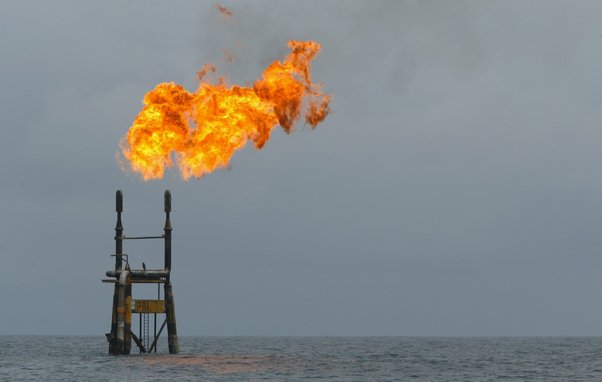“Some in Big Oil peddled the big lie,” said UN Secretary-General António Guterres this week in his address to the World Economic Forum’s (WEF) annual meeting in Davos, Switzerland. “We learned last week that certain fossil fuel producers were fully aware in the 1970s that their core product was baking our planet.”
Though the UN Secretary General didn’t mention the fossil fuel giant by name, it’s safe to assume he was referring to a widely reported academic article published last week that details how, from 1977 through to 2003, ExxonMobil’s in-house scientists projected fossil fuel emissions’ impact on climate change with disquieting accuracy. The researchers began the analysis eight years ago after an InsideClimate News investigation revealed internal documents showing ExxonMobil’s own scientists began warning that burning fossil fuels causes climate change as far back as the ‘70s.
WEF describes itself as engaging “the foremost political, business, cultural and other leaders of society to shape global, regional and industry agendas.” It doesn’t list ExxonMobil as an official partner of the event, but it does list TotalEnergies and Shell as partners, despite the fact both fossil fuel companies are also reported to have known about their emissions’ damage to the climate for decades. Chevron, BP, Aramco, and a dozen or so other fossil fuel companies also stack the list of partners that, according to WEF, are “developing solutions to the world’s greatest challenges”.
Oil and gas companies may claim to be trying to fix climate breakdown, but the facts speak for themselves. Despite an array of new “net zero” pledges by the industry, the climate promises of major U.S. and European oil and gas companies still fail to meet the bare minimum for alignment with the Paris Agreement. Last April, Global Witness found that some of the world’s biggest oil and gas companies are projected to spend a trillion USD on new oil and gas fields by 2030 alone.
This isn’t lost on all of the WEF’s attendees. In a presentation at the summit on Thursday, former US Vice President Al Gore claimed that the fossil fuel industry emits at least three times as many emissions as it says it does. This alarming statistic is based on an ambitious new data project, Climate TRACE, whose stated purpose is to cut through the sort of greenwashing and posturing that has become synonymous with Davos.

Al Gore, former vice-President of the United States, at the WEF, January 2023. LAURENT GILLIERON/EPA-EFE/Shutterstock
Launched ahead of COP27 last November, Climate TRACE is as a fast-paced and comprehensive source for greenhouse gas emissions worldwide. Virtually all other data that quantifies fossil fuel emissions on a global scale relies on governments’ self-reporting. Unfortunately, even the countries that have dedicated the most amount of money to collating the information are not fulfilling their obligation. At the time Climate TRACE was released, its benefactors said none of the signatories of the Paris Agreement had submitted a complete accounting of its emissions for 2021 to the UNFCCC despite it being a requirement of the agreement. Fifty-two of the signatories had not even disclosed their emissions for the previous decade.
Relying instead on a combination of remote sensing and artificial intelligence deployed to detect patterns in satellite imagery and data, the non-profit coalition’s data is designed to be able to identify exactly where emissions come from – and which companies are responsible. The fact the dataset is far from comprehensive, and continuously being improved on and expanded with additional data, is even more concerning, since it means it is possible that these estimates are conservative.
Being able to geolocate the source of greenhouse gas emissions not only elevates the expected standard of reporting by companies and governments, it can act as an accountability mechanism to expose potential under-reporting.
As Global Witness works to expose the influence of fossil fuel companies over government decision-making and dismantle the fossil fuel industry’s political power, Climate TRACE’s ambitious project exemplifies how innovative non-profit projects can support an accelerated transition to clean and genuinely renewable sources of energy.


